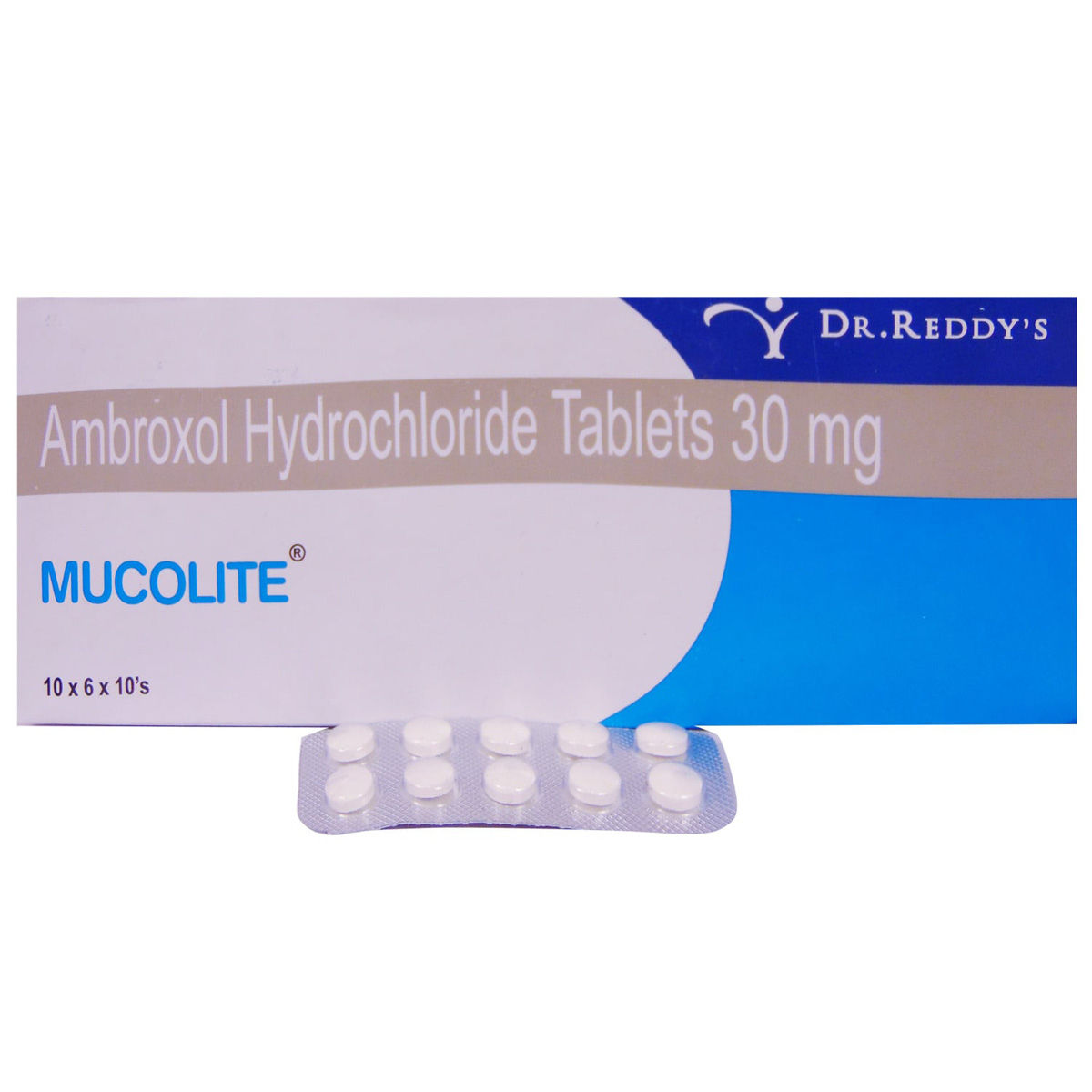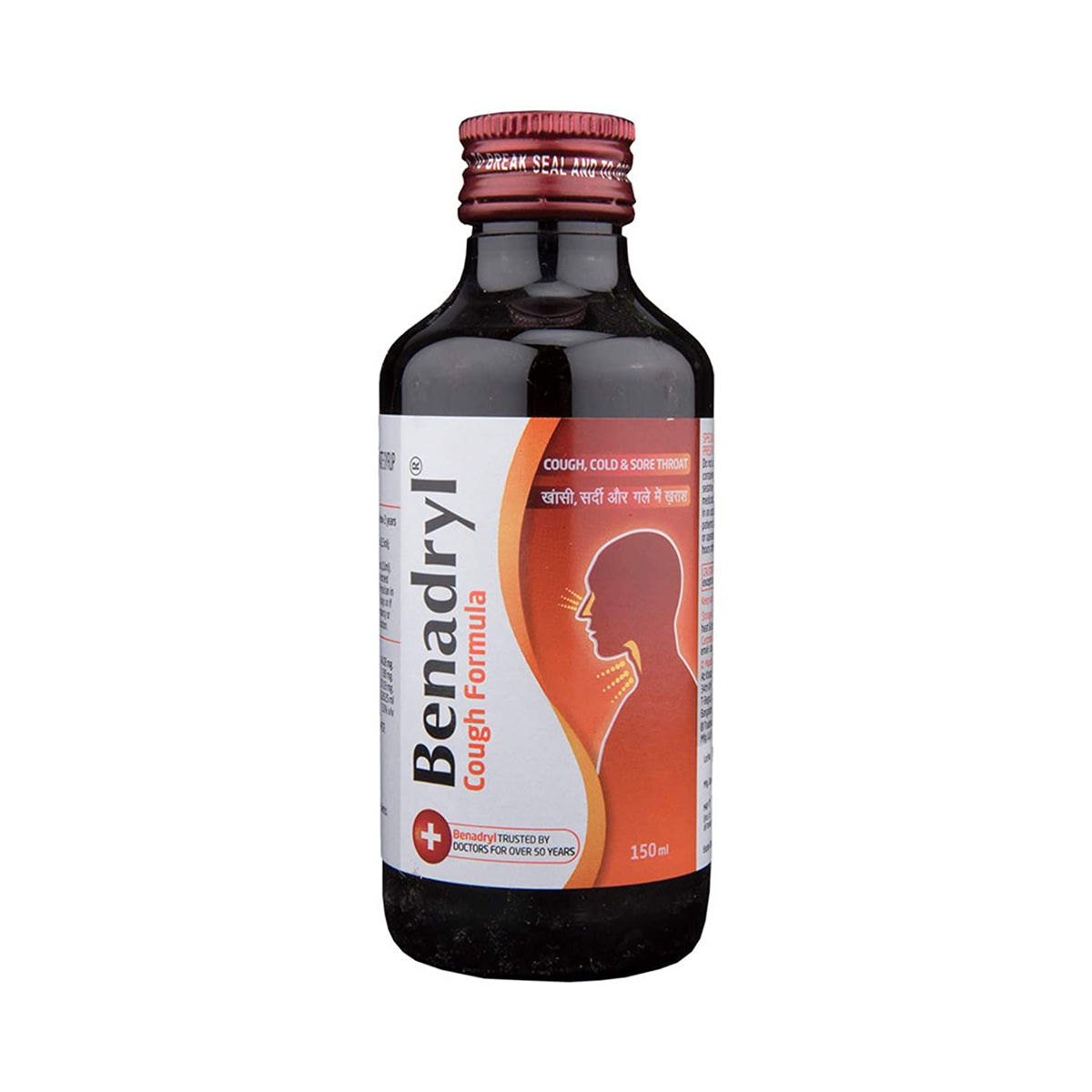Ambrodil Syrup 100 ml
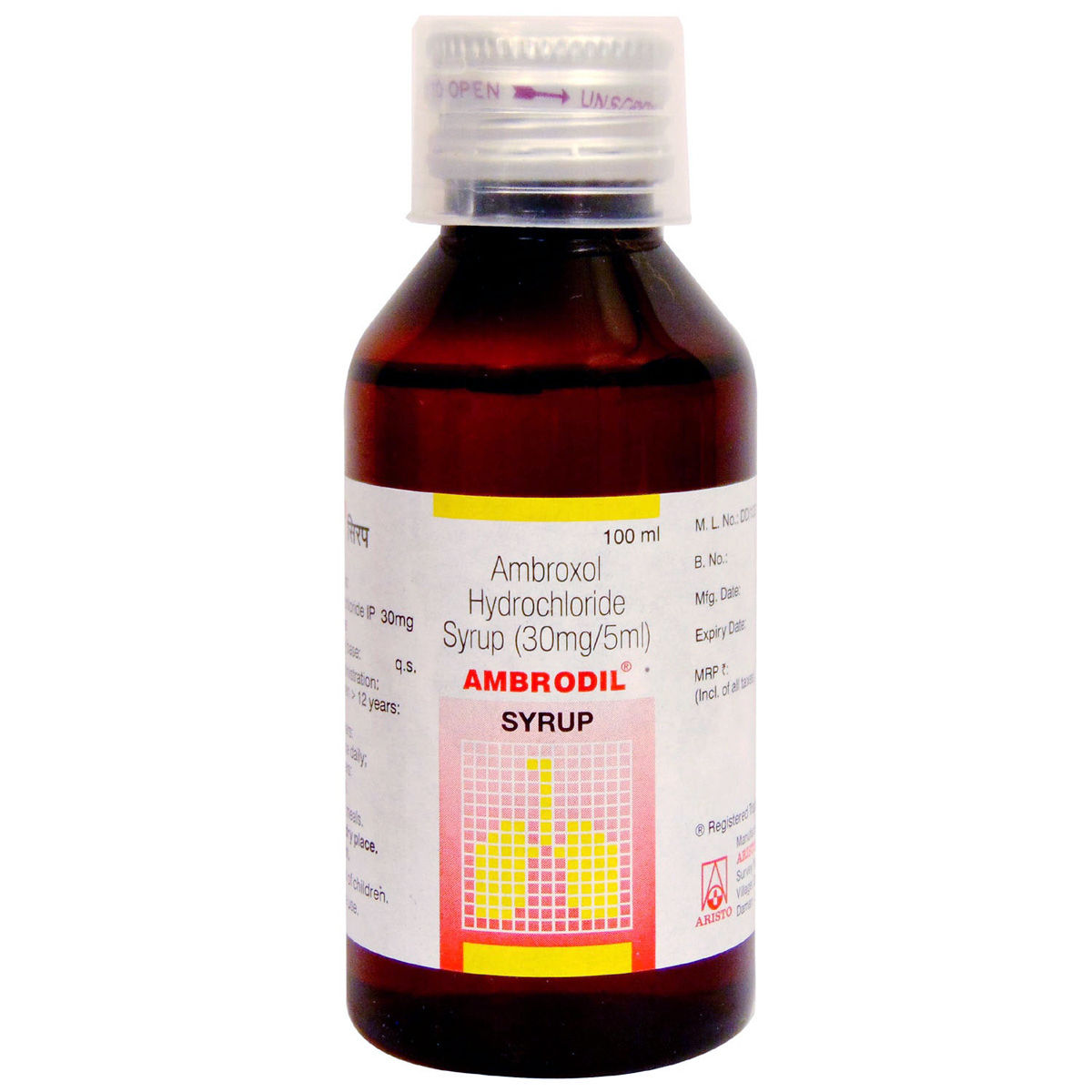
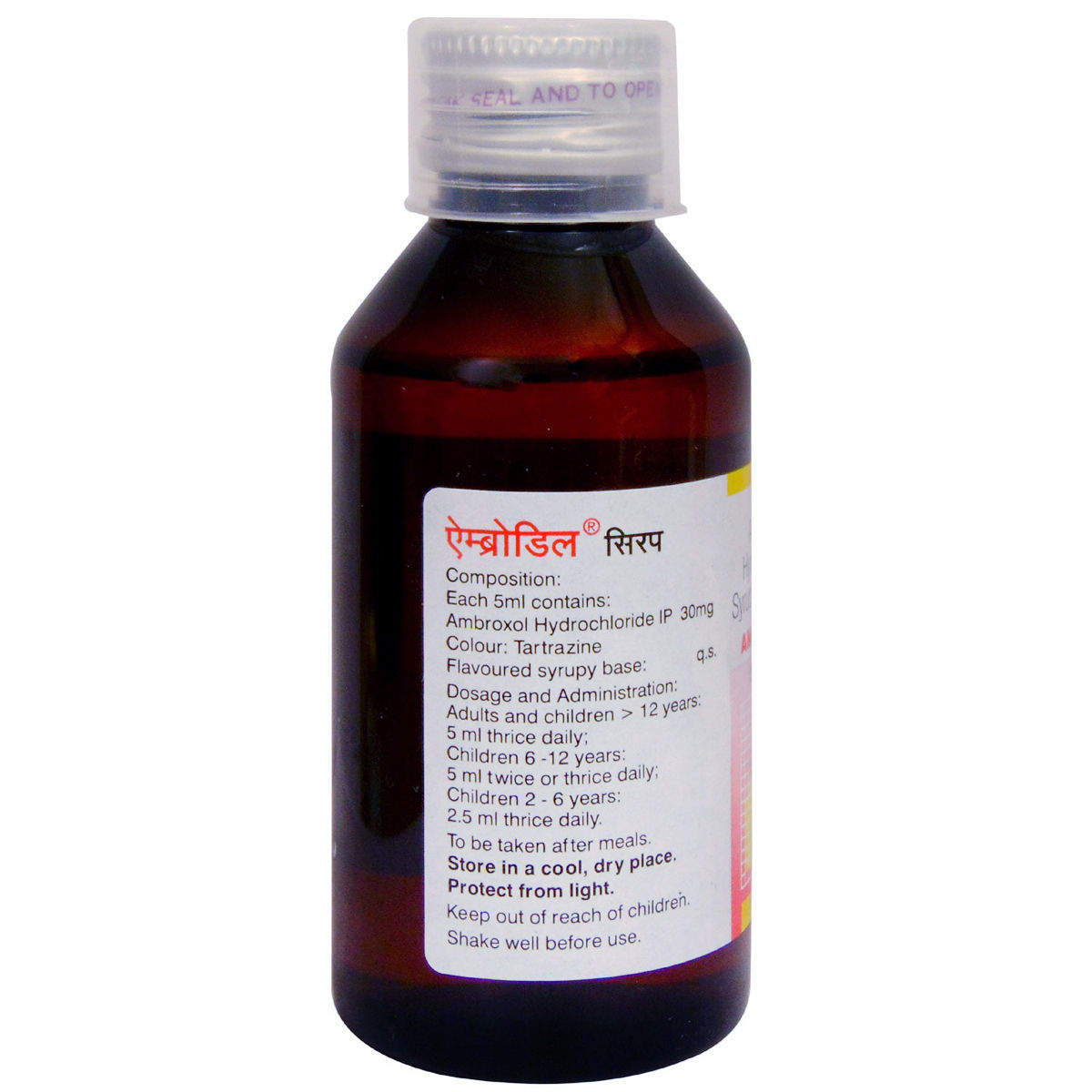
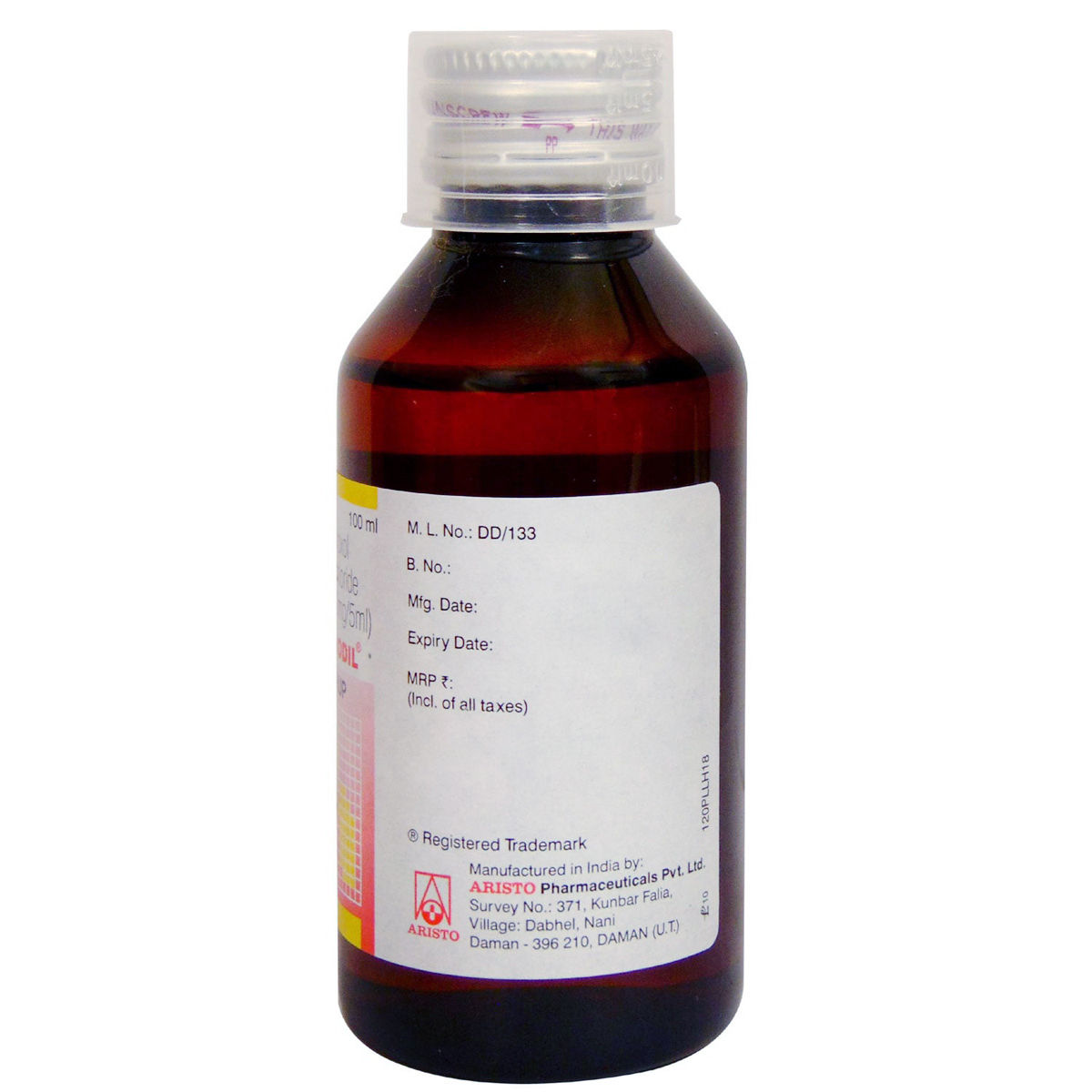
₹81*
MRP ₹90
10% off
₹76.5*
MRP ₹90
15% CB
₹13.5 cashback(15%)
Free Delivery
With Circle membership
(Inclusive of all Taxes)
This offer price is valid on orders above ₹800. Apply coupon PHARMA10/PHARMA18 (excluding restricted items)
Know Your Delivery Time
Provide Delivery Location
Available Offers
 Prescription drug
Prescription drugWhats That
 21 people bought
21 people bought 
Secure Payment

India's Most Trusted Pharmacy

Genuine Products
Composition :
Manufacturer/Marketer :
Consume Type :
Return Policy :
Expires on or after :
About Ambrodil Syrup
Ambrodil Syrup belongs to a class of drugs called 'mucolytic agents' (cough/sputum thinner) primarily used to treat acute (short term) and chronic (long term) respiratory diseases associated with excess mucus. Ambrodil Syrup is used in the conditions of acute and recurrent bronchitis (airway infection), laryngitis (voice box infection), tracheitis (windpipe infection) and chronic diseases like chronic bronchitis and chronic obstructive pulmonary disease (COPD).
Ambrodil Syrup contains Ambroxol hydrochloride that works by thinning and loosening phlegm (mucus) in the lungs, windpipe and nose. Ambrodil Syrup breaks down the acid mucopolysaccharide fibres and makes the mucous (sputum) thinner and less dense/viscous, removing sputum efficiently by coughing. However, the viscosity of sputum remains low for as long as treatment is maintained.
Take Ambrodil Syrup as prescribed. Your doctor will recommend how often you need to take Ambrodil Syrup based on your medical condition. Some people may experience side effects such as nausea, taste change, and numbness in the mouth, tongue and throat. Most of these side effects of Ambrodil Syrup do not require medical attention and gradually resolve over time. However, if the side effects persist or worsen, please consult your doctor.
If you are known to be allergic to Ambrodil Syrup or any other medicines, please tell your doctor. If you are pregnant or breastfeeding, it is advised to inform your doctor before using Ambrodil Syrup . If you have kidney or liver problems, stomach ulcers, asthma or cough for a long time, please inform your doctor before taking Ambrodil Syrup . In children below 6 years, the liquid form is preferred as tablets are contraindicated.
Uses of Ambrodil Syrup
Directions for Use
Medicinal Benefits
Ambrodil Syrup is a mucolytic agent (mucus thinner) that is used to treat acute (short-term) and chronic (long-term) respiratory diseases associated with excess mucus. Ambrodil Syrup helps in making sputum less viscous so that it can be coughed out easily in the conditions of acute and recurrent bronchitis (airways infection), laryngitis (voice box infection), tracheitis (windpipe infection) and chronic diseases like chronic bronchitis and chronic obstructive pulmonary disease (COPD). Ambrodil Syrup helps in thinning and loosening phlegm (mucus) in the lungs, windpipe and nose to cough out easily and provides relief from symptoms such as wheezing, coughing, tightness in the chest and shortness of breath.
How Ambrodil Syrup Works
Storage
Side Effects of Ambrodil Syrup
- Nausea
- Taste change
- Numbness in mouth, tongue and throat
What if I have taken an overdose of Ambrodil Syrup
Drug Warnings
Talk to your doctor before taking Ambrodil Syrup if you have had a cough for a long time, asthma or suffer from serious asthma attacks, liver or kidney problems, or peptic or duodenal ulcers. There have been reports of severe skin allergic reactions with Ambrodil Syrup , so if you develop a skin rash, immediately stop using Ambrodil Syrup and contact your doctor immediately. Avoid taking Ambrodil Syrup if you are pregnant or breastfeeding.
Drug-Drug Interactions
Drug-Drug Interactions
Login/Sign Up
Drug-Food Interactions
Drug-Food Interactions
Login/Sign Up
Diet & Lifestyle Advise
Avoid dairy products such as milk as it may increase mucus production. Also, avoid processed or refined foods. Instead replace baked foods, fried foods, white bread, white pasta, French fries, sugary desserts and chips with green leafy vegetables.
Drink plenty of fluids to avoid dry throat while you have a cough.
Avoid citrus fruits as they may worsen the cough.
Eat fruits that are rich in water content such as pears, watermelon, peaches and pineapples.
Habit Forming
Therapeutic Class
Ambrodil Syrup Substitute

Mucolite Tablet 10's
by Others
₹4.77per tablet
Product Substitutes
Alcohol
Caution
Interaction of alcohol with Ambrodil Syrup is unknown. Please consult a doctor before consuming alcohol with Ambrodil Syrup .
Pregnancy
Unsafe
Ambrodil Syrup is a Category C pregnancy drug and is not recommended for pregnant women especially in the first 3 months as it may cause harm to the unborn baby.
Breast Feeding
Unsafe
Avoid breastfeeding while taking Ambrodil Syrup as it may be excreted in breast milk and cause adverse effects in the baby.
Driving
Safe
Ambrodil Syrup usually does not affect your ability to drive or operate machinery.
Liver
Caution
Take Ambrodil Syrup with caution, especially if you have a history of Liver diseases/conditions. The dose may be adjusted by your doctor as required.
Kidney
Caution
Take Ambrodil Syrup with caution, especially if you have a history of Kidney diseases/conditions. The dose may be adjusted by your doctor as required.
Children
Caution
Ambroxol hydrochloride as a tablet is not recommended for children below 6 years of age. Ambroxol hydrochloride in oral solution form can be given to children below 6 years in doses prescribed by a doctor.
FAQs
Ambrodil Syrup is used to treat cough associated with excess mucus. It is used in the conditions of acute and recurrent bronchitis (airway infection), laryngitis (voice box infection), tracheitis (windpipe infection) and chronic diseases like chronic bronchitis and chronic obstructive pulmonary disease (COPD).
Ambrodil Syrup breaks down the acid mucopolysaccharide fibres and makes the mucous (sputum) thinner and less dense/viscous, removing sputum efficiently by coughing.
You are recommended to take Ambrodil Syrup for as long as your doctor has prescribed it. However, if the symptoms worsen or persist after 5 days (3 days in children) of using Ambrodil Syrup , please consult your doctor.
Ambrodil Syrup may cause skin reactions in some people. It is not necessary for everyone taking Ambrodil Syrup to have skin reactions. However, if you notice a skin rash including lesions of the nose, throat, mouth, genitals or eyes, stop taking Ambrodil Syrup and consult a doctor immediately.
Taking Ambrodil Syrup with antibiotics such as erythromycin, amoxicillin, doxycycline and cefuroxime may increase the concentration of antibiotics in the formed mucus in the airways. Therefore, you are recommended to consult a doctor before using Ambrodil Syrup with antibiotics or any other medicines.
Country of origin
Manufacturer/Marketer address
Customers Also Bought
Disclaimer
Author Details
We provide you with authentic, trustworthy and relevant information
Reference
- https://mri.cts-mrp.eu/human/downloads/CZ_H_0606_002_FinalPL_2of2.pdf
- https://mri.cts-mrp.eu/download/DK_H_2364_002_FinalPI.pdfhttp://mri.cts-mrp.eu/download/SK_H_0101_001_FinalSPC.pdf
- https://www.drugs.com/ambroxol.html
- https://doctor.ndtv.com/living-healthy/foods-that-you-should-stop-eating-when-coughing-1731895











